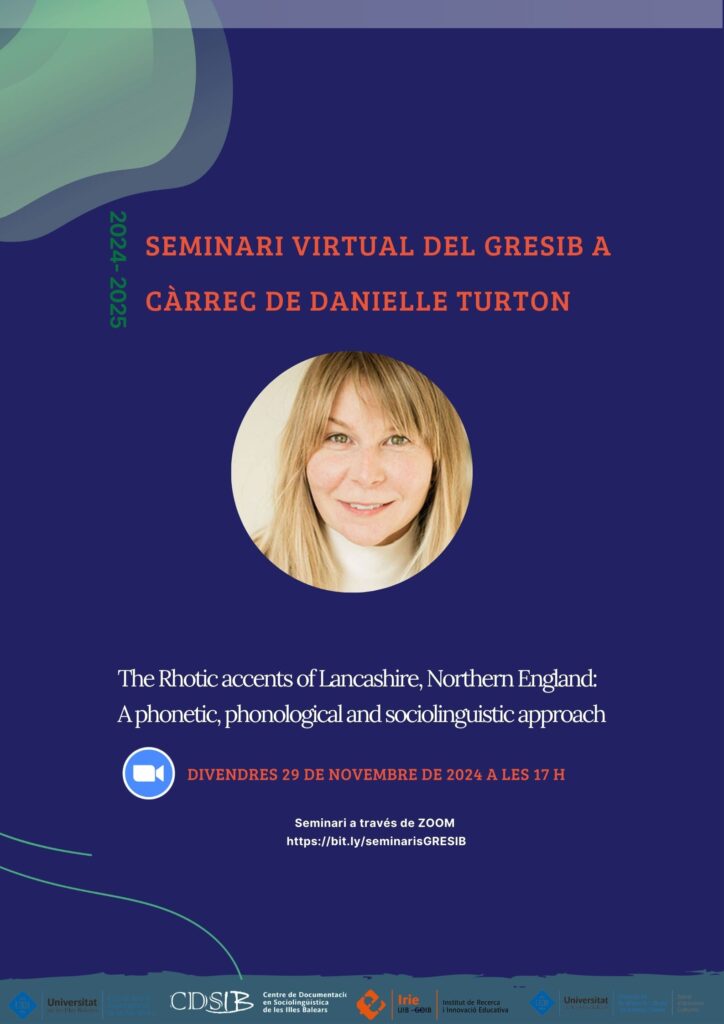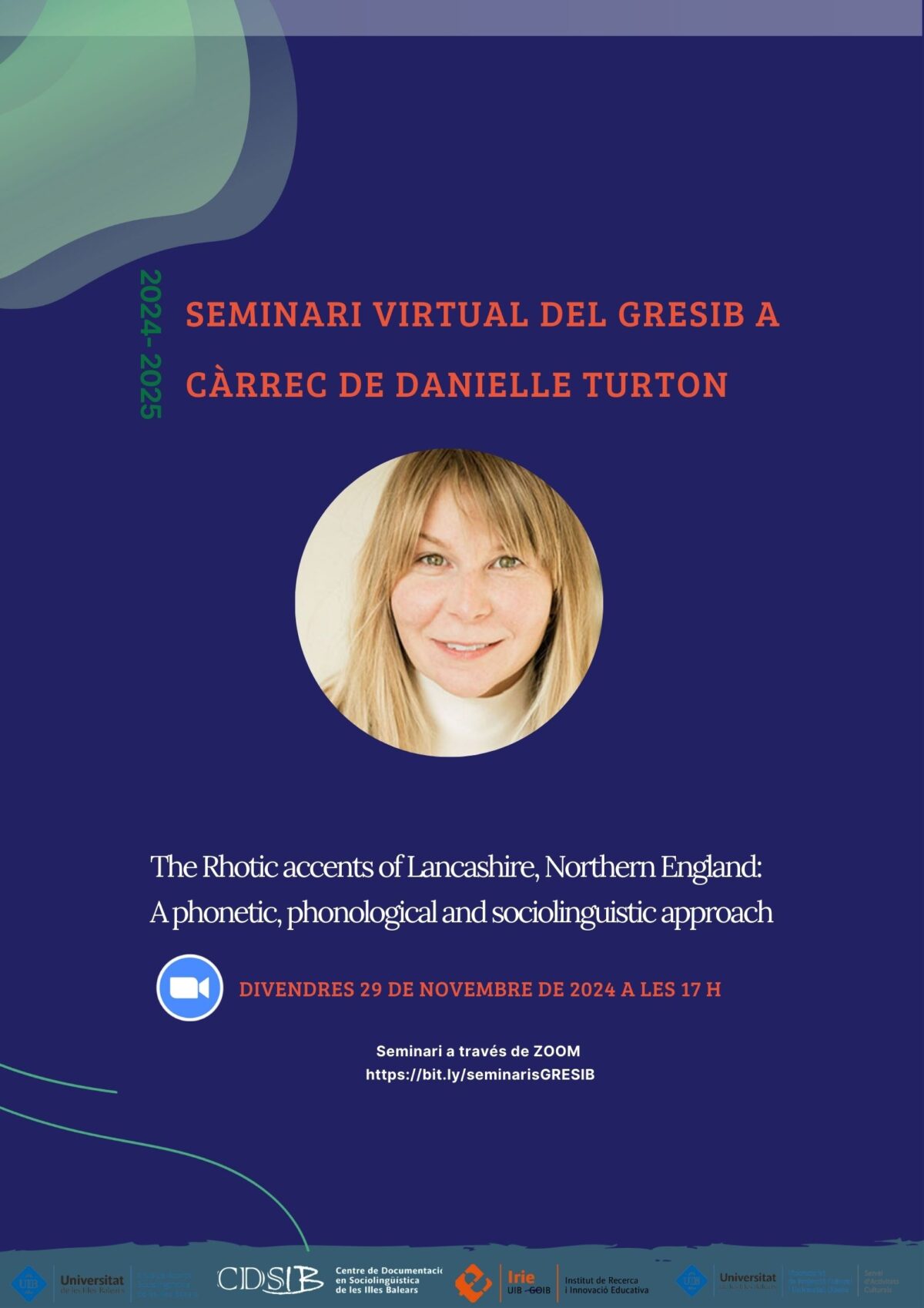
The Rhotic accents of Lancashire, Northern England: A phonetic, phonological and sociolinguistic approach
East Lancashire towns are among England’s few remaining rhotic regions, where speakers preserve the /r/ sound in words like star and heart. This feature is stigmatized in Anglo-English, leading experts to forecast its rapid disappearance (Trudgill 2000, Britain 2002). Sociolinguistic and dialectological research has extensively documented rhoticity’s decline in England (Barras 2011, Piercy 2012, Leeman et al. 2018,; Blaxter et al. 2019). In this talk, I present the first ever phonetic evidence for Anglo-English rhoticity and discuss implications for phonetics, phonology and sociolinguistics by examining contemporary data from:
- 28 sociolinguistic interviews (14f, 14m, ages 17-81) using acoustic and auditory analyses;
- 28 ultrasound interviews (14f, 14m, ages 18-72) analyzing tongue splines alongside acoustic and auditory assessments.
The analysis across both corpora reveals a consistent reduction in rhoticity over apparent time. Nevertheless, even the youngest speakers often distinguish between minimal pairs like spar and spa. Acoustic measurements (F3-F2) show that rather than fully dropping /r/, its articulation is weaker among younger and female speakers, indicating a gradient, female-led change.
Ultrasound data reveals variability in Blackburn’s rhotic production, ranging from retroflex to bunched /r/, with instances of complete non-rhoticity. Although older generations remain strongly rhotic, our studies confirm that derhoticisation is progressing, particularly among younger speakers who exhibit phonetic weakening of /r/, including schwa-offglides. In some young females, outright /r/ deletion correlates with external community ties. I will discuss these findings’ implications for understanding phonological change and defining rhoticity from both phonetic and phonological perspectives.
Accés al seminari: https://bit.ly/seminarisGRESIB

